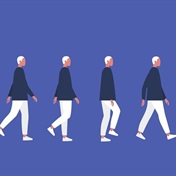Some of the genes, associated with the most common form of Alzheimer's, appear linked to known genetic risks for the degenerative brain disorder, the team at Harvard Medical School in Boston reported on Thursday.
"We are on the cusp of a rare 'science moment' that could alter the way we diagnose, treat and prevent Alzheimer's disease," said Rudolph Tanzi of Massachusetts General Hospital, who led the study.
Tanzi's team analysed samples from more than 1 300 families for their study, published in the American Journal of Human Genetics. Dozens of genes have been linked with Alzheimer's, most notably the APOE4 gene, which clearly raises the risk of developing the disease.
How the study was done
Tanzi's team did a genome-wide association study, using gene chips to check the activity of all human genes among families with Alzheimer's patients and comparing them with families whose members had not developed the disease. They got the strongest indications from a stretch of DNA on chromosome 14.
"The genetic association of Alzheimer's with this novel chromosome 14 gene, which like APOE appears to influence age of onset, is sufficiently strong to warrant intensive follow-up investigations into its role in the process of nerve cell death in this disease," Tanzi said.
"This gene also is in the general vicinity of the presenilin-1 gene, which we know is an early-onset Alzheimer's disease gene. We don't know if that proximity is a coincidence, and we currently don't know what the new gene does, although there is some indication it may control the activity of other genes."
Drugmakers are already starting to use genetics to develop Alzheimer's treatments. Elan and Wyeth's experimental drug bapineuzumab is being tested in people who do not carry a version of the APOE gene associated with higher Alzheimer's risk.
There is no cure for Alzheimer's, the most common cause of dementia. The Alzheimer's Association estimates as many as 5.2 million Americans have it and predicts that by 2010 nearly a half million new cases will occur each year. Current drugs can delay the symptoms slightly, but patients inevitably lose their memories and abilities to find their way around and care for themselves. – (Reuters Health, October 2008)
Read more:
Alzheimer's is hereditary
Alzheimer's drug shows promise




 Publications
Publications
 Partners
Partners














